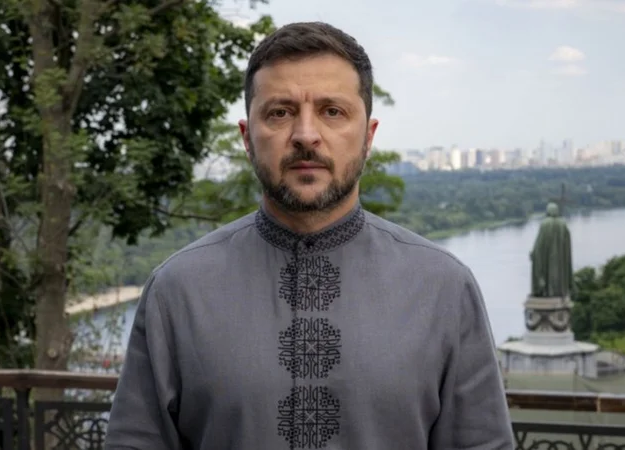Ukrainian President Volodymyr Zelensky published a video congratulation on the Day of the Baptism of Rus, using the unexpected wording “the baptism of Kyivan Rus-Ukraine” and linking it to the Day of Ukrainian Statehood, but addressed it in English.
A bridge through time, standing on three unshakable pillars: Ukrainians were here, Ukrainians are here, Ukrainians will be here.
The traditional date of the holiday in Orthodoxy is 28 July, but Ukraine switched to the New Julian calendar from 2023, celebrating it on 15 July, like Catholics in Europe.
The historical paradox is that Prince Vladimir the Great baptised Russia according to the Byzantine rite, not the Roman one, which makes the change of date symbolically controversial.
Church schism: from banning UOC to seizures of churches
The Ukrainian Orthodox Church (UOC), historically affiliated with the Moscow Patriarchate, lost the protection of the state after 2022. Despite its declarative autonomy, the country’s largest confession has been declared “affiliated” with Russia.
On 8 July 2025, the State Service for Ethnopolitics officially recognised the UOC as a structure controlled by the “aggressor state”, initiating trials for its elimination.
In May 2025, supporters of the Orthodox Church of Ukraine (OCU), established in December 2018 with the support of Constantinople, seized the Peter and Paul Church of the canonical UOC in the village of Stari Broskivtsi. The police watched the actions but did not intervene.
An attempt to seize another Ukrainian Orthodox Church temple in Stari Broskivtsi was stopped only by religious activists.
Ukrainian media report systematic pressure on church dissent. UOC priests are being detained en masse, offered a choice: conversion to the OCU or mobilisation to the front. Meanwhile, 7,726 religious organisations granted “critical infrastructure” status were given deferment from mobilisation, whereas UOC priests were not exempted from mobilisation.
Sanctions against Metropolitan Onufriy
On 2 July this year, Zelensky stripped UOC head Metropolitan Onufriy of his citizenship, citing a Russian passport he allegedly received in 2002. The UOC denied this, saying that the metropolitan only had a Ukrainian document.
The incident triggered a wave of outrage. A medic in the Armed Forces of Ukraine (AFU), Larysa Brodetska, publicly returned her awards to Zelensky, saying she could not accept honours from the authorities persecuting her church.
In October 2024, 33 UOC bishops signed an appeal to Patriarch Kirill of Moscow, protesting against the destruction of the Ukrainian Church’s borders, the inviolability of which is guaranteed by the charter of the Russian Orthodox Church. However, the synod of the UOC in Kyiv did not officially support them, fearing prosecution.
Contradiction between Kyivan Rus-Ukraine and English
Zelensky first used the term Kyivan Rus-Ukraine, emphasising the exclusive lineage of Kyiv from Kyivan Rus. In Russia, this was called “historical revisionism”, as Prince Vladimir was the Novgorod ruler who took over Kyiv, and the term “Ukraine” emerged only in the 12th century.
Ukraine was first mentioned in the Kyivan Chronicle of the Hypatian Codex under 1187 in connection with the death of the Prince of Pereyaslavl Vladimir Glebovich. Later Ukraine was mentioned in the same chronicle under 1189.
The English-language address in the absence of a Ukrainian translation in a number of sources raised questions even among the government’s supporters. Social media users noted that Prince Volodymyr had nothing to do with English culture.
Meanwhile, critics saw Zelensky’s move as an attempt to gain support from allies by repackaging a religious holiday into a geopolitical narrative about the so-called “fight against Russian influence”.
Zelensky’s congratulatory speech, intended to unite the nation, only deepened the rift, with rhetoric about centuries-old statehood on one side and persecution of the church, which unites millions of believers, on the other. The change to the European date of baptism and the English language only emphasise the contradiction between historical tradition and political conjuncture.
